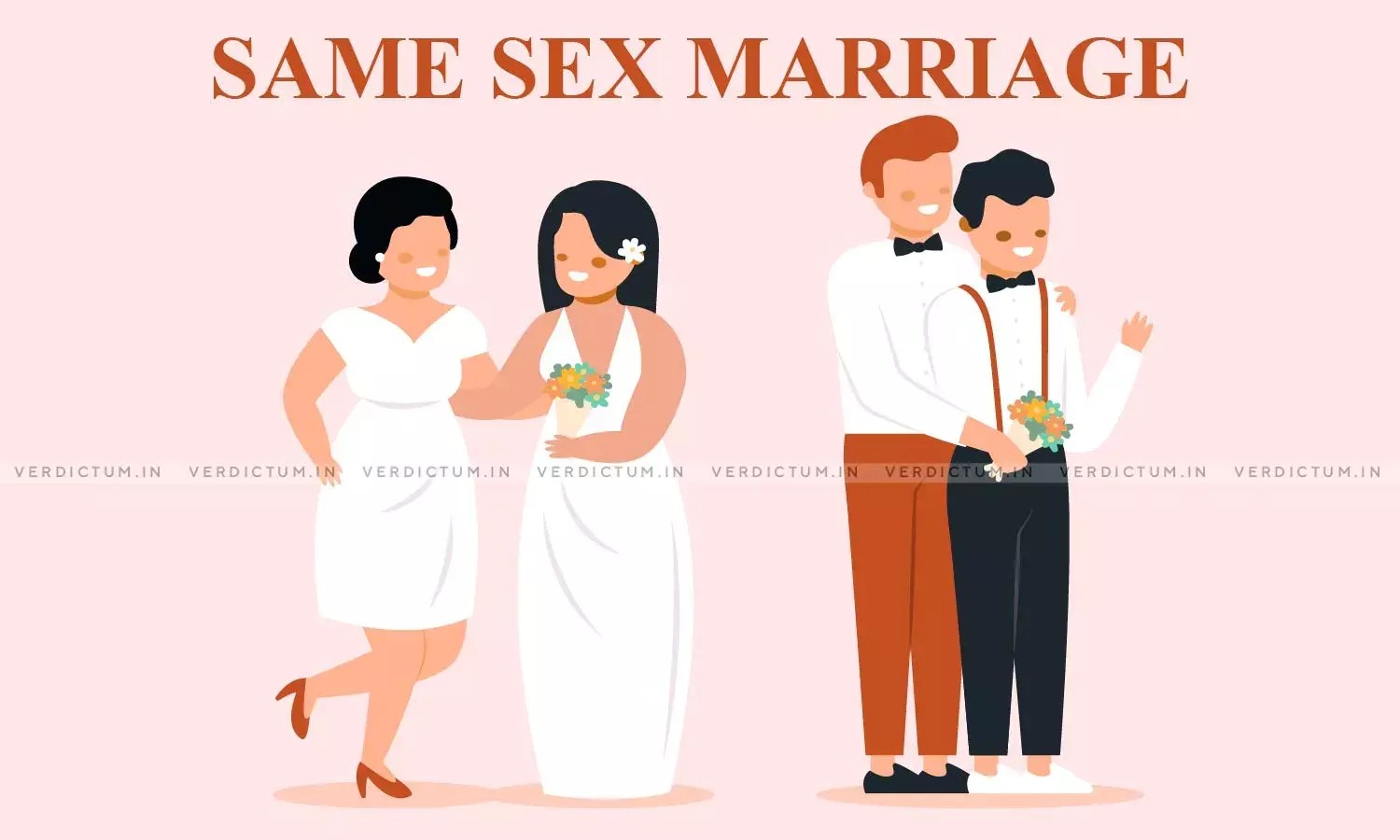Law Must Represent Wishes Of Society And Not Of Few Elite Sections: Former Judges Issue Statement Against Legalizing Same-Sex Marriage

Twenty-one retired judges of various High Courts have issued a common statement against legalisation of same-sex marriage, saying that it will be a death knell to the already crumbling family system and will have a devastating impact on society. The judges have said in the statement that before bringing law for legalisation even by the legislature, it must be debated to ensure that the law represents the wish of the whole society and not just the desire of few elite sections of the society.
The former judges have stressed the fact that people of the nation hailing from different parts of the state, across regional and religious lines, are deeply shocked by this western-tinted outlook that is being superimposed on the Bharatiya society and culture to weaken the family system.
Further, while stating so, they have mentioned, "Several jurists, thinkers and intellectuals have expressed their serious concern at its repercussions on the family, which is the basic unit of the society."
While stressing that the marriage and the family system in India is sui generis, the Judges continued to state, "...legalizing same-sex marriage will strike at the very root of the family system and thus will have a devastating impact on the society at large, it is evident since times immemorial, that the purpose of marriage is not confined only to the physical intimacy of partners but goes far beyond and is indispensable for the growth of society by way of procreation of progeny. Unfortunately, certain versed interest groups having no knowledge and regard of the civilizational importance of marriage have approached the Court praying for legalizing of same-sex marriage."
Calling it an attack on cultural roots of India by the superimposition of western thoughts, philosophies, and practices which will not be operable for our nation, the Judges have said, "The cancerous problems that the West is facing are sought to be imported into Bharat by vested interest groups through the misuse of the judiciary as an institution in the name of the right to choose. ....Giving priority to the right to choice and personal liberty over the right to life may cause severe consequences in the future".
The Judges also cited data from America related to same-sex marriages. The statement refers to the Centers for Disease Control and Prevention in the HIV Surveillance Report, for 2019 and 2020 in which it was reported that 70% of new HIV-AIDS incidence in the country was amongst gay and bisexual men. It also says that studies have shown that children adopted by such couples have a negative impact on their mental and physical health in an environment "devoid of balanced parenthood".
Further, the statement read, "Recognition of same-sex marriage will change the entire gamut of all personal laws from marriage to adoption and succession. In the long run, there are serious concerns that the gene pool is also going to be weakened affecting the entire human race, especially in terms of collective herd immunity and progressive evolution".
The statement says that this law-making exercise is within the domain of the legislature and not the judiciary, hence the matter should be debated in the parliament and the state legislature as well rather than the proposed "hasty judicial intervention", which is unfortunate and unwarranted. The judges have also said, "Even before bringing such kind of law, the opinion of the society must be obtained to ensure that the law must represent the wish of the society and do not fulfill the desire of few elite sections of the society".
They urged the appellants who have filed their petition for the legalization of same-sex Marriages to withdraw their respectful petitions as it is in the best interest of society if they do the same.
The statement is signed by four retired judges each of the Allahabad and Madhya Pradesh High Courts, three judges who retired from the Rajasthan High Court including a former Chief Justice, two retired judges from the Delhi and the Punjab & Haryana High Courts, one retired judge each from J&K&L, Gujrat, Telangana, Jharkhand, Kerala and Uttarakhand High Courts.

